From “City-Treff” to SK Stiftung Kultur
Cultural commitment for all citizens since 1976
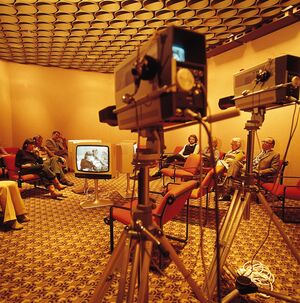
The work of the cultural foundation was greatly influenced by educational ideas during its establishment phase in the 1970s. Under the name “Stiftung City-Treff Informations- und Bildungszentrum” (“City-Treff” Information and Education Center Foundation), the operation of the foundation under private law with legal capacity was taken up on January 1, 1976 on the occasion of the 150th anniversary of the then Stadtsparkasse Köln. Its purpose was to promote “the social and cultural relationships between peoples and as such to offer a wide range of educational and recreational activities.” Back then there was a “culture café” open to the public located on the ground floor of the Sparkasse building on Rudolfplatz; the café included a selection of multimedia, and lectures on current topics also took place. In addition, the City-Treff offered workshops on topics such as painting, photography, and the then fledgling medium of video, in which people could express their creativity.
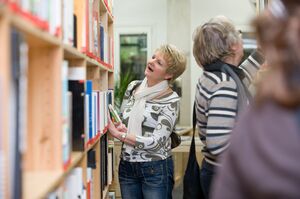
The work of the Foundation experienced its first turning point in 1983 with the establishment of the “Academy för uns kölsche Sproch” (Kölsch Language Academy). This unique, one-of-a-kind institution in Europe, which encourages the preservation and the cultivation of a modern Cologne regional language “Kölsch”; it is our mission to foster lesser-known, yet worthwhile initiatives. The founding of the Akademie stems from the concern that Kölsch would eventually become extinct, because since the 1970s the everyday use of Kölsch had declined as the result of the speaker’s supposed low level of education. Today, after more than 30 years, the institution is firmly anchored in Cologne, and with its broad range of seminars and events, as well as the public library, has become the point of contact for all matters that have to do with Kölsch. The Foundation offers complimentary Internet-based services such as the Kölsche Online-Wörterbuch (Kölsch Online Dictionary), the Kölsche Lieder-Sammlung (Kölsch Song Collection), and the “Navi op Kölsch” (Navigation in Kölsch).
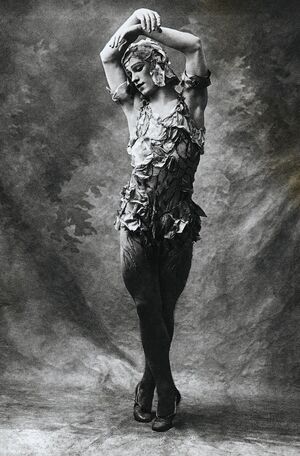
The year 1985 can be seen as a first milestone to a reorientation of the Foundation as it acquired the private dance history collection and library of the dancer, teacher, and publicist Kurt Peters, which he’d begun in 1948. Under the name Deutsches Tanzarchiv Köln (German Dance Archive Cologne), together with the city of Cologne, the library and collection are made available to a broad public as an information, documentation, and research center for dance.
The focus of the archival work is the safeguarding and the scholarly research of the estates of significant dancers and choreographers as well as supporting research projects and publishing its research. In the adjoining Tanzmuseum (Museum of Dance), dance’s past and present is experienced in a unique way through yearly temporary thematic exhibitions that draw from the rich collections of the Deutsches Tanzarchiv Köln.
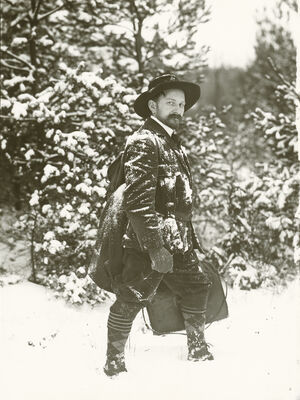
© Die Photographische Sammlung/SK Stiftung Kultur – August Sander Archiv, Köln; VG Bild-Kunst, Bonn, 2014
In 1992, the SK Stiftung Kultur Sparkasse Cologne/Bonn established the foundation for the Photographische Sammlung (Photography Collection). It acquired the artistic legacy, including the image rights of the photographer August Sander, and thus secured this important estate for Cologne. There was a high probability that the works would ultimately end up in a collection abroad, because unlike in the United States and a few other European countries, in this country, photography as an art object received insufficient attention until the 1990s. Documentary photography as a means of artistic expression in the tradition founded by August Sander is central to the research and exhibition activities of the Photographische Sammlung. The inventory now includes over 30,000 works of historical and contemporary photographers of varying nationalities. The August Sander archive remains the most voluminous with over 10,500 negatives and 5,500 original prints and significant groups of works from the oeuvre of the artist couple Bernd and Hilla Becher, which also includes the negatives and prints. Both artistic positions, since 1992 and 1996 respectively, are stylistically and contextually, relevant for the further development of the collection. In particular, a long-term loan from the Universität der Künste Berlin (Berlin University of the Arts) of original prints by Karl Blossfeldt expands the focus on documentary photography.
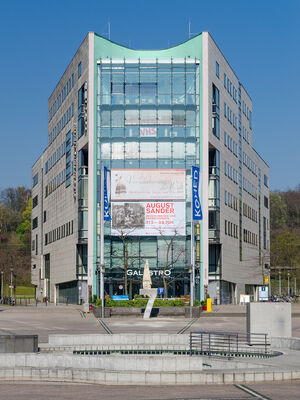
Since 1996, the Foundation’s headquarters has been situated in the Media Park Cologne and operates under the name SK Stiftung Kultur der Sparkasse KölnBonn. At the headquarters, the Foundation also maintains the appropriate exhibition and storage rooms to house its collections and archives.
During the 1990s there was a new orientation of activities in the core area of the Foundation, such as in the promotion of literature and reading as well as the section for video dance, from which later, media art education emerged. Other projects that the Foundation had initiated were transferred into the care of other institutions, such as the Kölner Literaturatelier (Cologne Literature Studio), which supports professional young authors, the Internet portal for the freie Kölner Theaterszene (The Independent Cologne Theater Scene) www.theaterszene-koeln.de, or “Die Kunstproduzenten: Agentur fur Kunst and Medien” (a media arts collective).
In 1990, the Kölner Theaterpreis (Cologne Theater Award) was offered in the Foundation’s adult and youth section for the first time. Over the course of 25 years, other award categories were added that distinguish and highlight the excellence of the independent Cologne dance and theater scene. In 1992, the Foundation and the City of Cologne started the joint success story of the Sommer Köln (Cologne Summer, a street theater festival).

